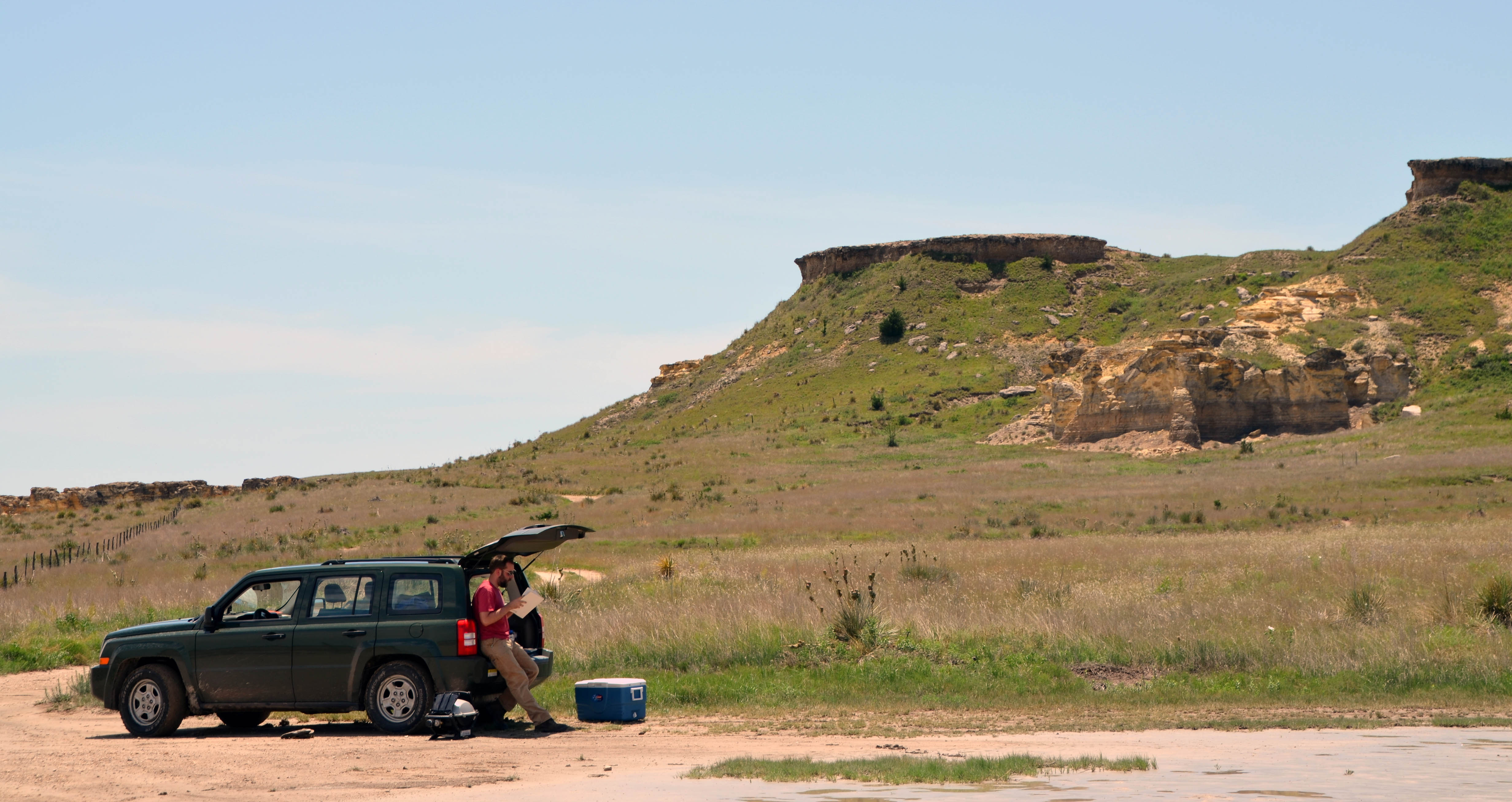
For Chris Lowery, choosing a career in geology was simple: he just wanted to work outside. The rest took care of itself.
“It’s the kind of thing where you’re getting paid to be outdoors, and then on your days off you keep hiking and backpacking and doing the things you were getting paid to do,” he says of his time at at Philmont Scout Ranch, a Boy Scouts camp in New Mexico, where he guided visiting scouts on backpacking treks through the Sangre de Cristo Mountains sharing survival techniques and basic science theories.
Lowery, the first ever Richard T. Buffler postdoctoral fellow at the University of Texas at Institute for Geophysics (UTIG), enrolled in a variety of intro courses his first year at the University of Mary Washington and took a special liking to geology. Having considered majoring in history, learning about Earth’s past combined the two interests.
A sedimentology and stratigraphy class his sophomore year led to a research project gathering ostracods at Mono Lake in California, just east of Yosemite National Park. Working on the project developed his affinity for micropaleontology and geochemistry, despite an initial disinterest in biology and chemistry. Lowery credits the small class sizes at UMW for getting to explore avenues of science he might not have otherwise considered, and how is career unfolded as a result.
“There were nine people in my class,” he says. “I was lucky to have so much one-on-one time with my professor. The opportunity to go into the field so early in my education might not have been there at a larger school.”
From there, he pursued micropaleontology at the University of Massachusetts, Amherst, where he studied under well-known geoscientist Mark Leckie and received his master’s and Ph.D. degrees.
“Going through grad school, a lot of friends get burnt out. I never got to that point,” Lowery says. “Even after particularly grueling stretches, I’ve always thought ‘this is awesome!’ and in that sense it has worked out really well for me.”
Lowery will be assisting with UTIG’s Gulf Basin Depositional Synthesis (GBDS) project, where his experience as a biostratigrapher will be used to help tell time and develop the story of how the climate and oceanography of the gulf has changed. Lowery, who has previous experience working within the oil and gas industry, will spend the bulk of his time on the seismic interpretations, while also working on other projects related to the Mesozoic history of the Gulf of Mexico.
“Everybody wants to do some sort of applied science. I think there is room for purely curiosity-driven research,” he says. “You don’t have to be solving one of society’s problems for science to be worthwhile. Adding knowledge to humanity is a worthy goal in and of itself.”
